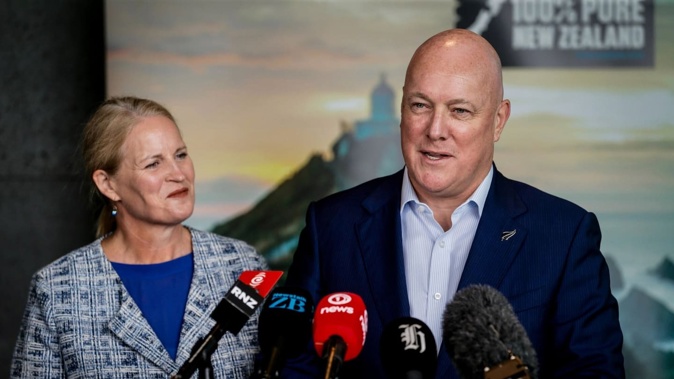
The Government is promising more flexible funding for disabled people through amendments being made to the support system.
Among a list of changes announced by Disability Issues Minister Louise Upston today is having a single assessment process for support, considering families and carers within that assessment if their needs are relevant to the care of the disabled individual, and no longer applying the controversial March 2024 purchasing guidelines.
However, each flexible funding user will have a budget, based on their previous spending. This will help avoid the risk of cost escalations, Upston said.
The changes respond to feedback from the community over the past year, including following the widely criticised changes to purchasing settings in early 2024.
Then-Disability Issues Minister Penny Simmonds was stripped of the portfolio last April after admitting the handling of funding changes hadn’t been up to standard.
Upston then announced an independent review into the support system funded by the Ministry of Disabled People – Whaikaha.
That found the ministry’s financial controls were poor, with inadequate monitoring of expenditure.
A series of actions were announced to address the issues, including making the Ministry of Social Development (MSD) responsible for support services, maintaining some funding at previous levels while a rapid review occurred, and ensuring support was fair and based on need.
On Wednesday, Upston said further changes would be made to the system to give the community more “choice and control around flexible funding”.
“We know some difficult decisions had to be made in 2024 to limit ongoing acceleration of costs. Since then, we have done more work to make sure disabled people, their families and carers have a system they can trust and is easy to use.”
She said the Government had made “real progress in stabilising services, with this year’s Budget funding $1 billion over four years towards meeting the increasing costs of disability support services, including $240 million for residential care”.
The changes being announced today only apply to disability support services and funding allocated by Needs Assessment Service Co-ordination organisations (NASCs). These are contracted by the Government to serve the disability community.
They are:
- To ensure the co-ordination of support is consistent across the country, there will be a single assessment process and allocation used by all NASCs.
- NASCs will develop personalised support plans.
- Families and carers will be considered as part of the assessment where their needs are relevant to the care of the disabled disability support user.
- The purchasing guidelines, including March 2024 amendments to them, will no longer apply.
- Flexible funding users will have more choice and control but will need to keep their spending within their budget
- People can seek a reassessment if their circumstances have changed, but otherwise will not receive more funding if they use up their budget early.
 Louise Upston says the changes have been informed by consultation with the community. Photo / Mark Mitchell.
Louise Upston says the changes have been informed by consultation with the community. Photo / Mark Mitchell.
Upston said a budget was necessary for purchasing to avoid a risk of rapidly escalating costs.
“To manage this risk, each flexible funding user will get a budget. It will be based on their previous spending. This will consider spending before June 2025 and including the period before March 2024.
“From February 2026, people who are new to the system will be given a budget following an assessment. From April 2026, existing flexible funding users will get a budget and have purchasing guidelines lifted.
“This is a transition step. From 1 October 2026, regular reassessments for existing DSS users, including the development of personal plans will be underway.”
She said support for families and carers would be considered as part of the assessment if they are relevant to the care of the disabled person, “something we heard really clearly through the consultation”.
“Supporting carers is essential to sustaining carers and the support they provide for their loved ones. It also helps everyone involved to plan for situations where the family or carers can no longer provide care.”
The changes don’t include support or funding allocated through the Enabling Good Lives sites, with Upston saying further consideration was needed if there were to be any changes to this model.
Upston said the improvements have been informed by more than 1,800 disabled people, their families, and carers who participated in nationwide community consultation.
“We know about 38,500 people already use flexible funding, with more than 90% of them accessing it through a NASC.
“While it will take time to implement the new system, these changes are significant for disabled people, families and carers.
“They build on improvements already made to stabilise the disability support system while longer-term work is done to strengthen it to reflect the Enabling Good Lives vision and principles.”
Labour’s disability issues spokeswoman Priyanca Radhakrishnan said the Government had been “dithering”, leaving disabled people “suffering unnecessarily because of its cruel changes”.
“Labour has been calling for flexibility to be reinstated and so while this news might offer some reprieve, I question why the Government put disabled people and their families through such pain in the first place,” she said.
“Disability communities told the Government, through recent consultations, what they’ve been saying for years – they want better choice and control over the services they access."
Take your Radio, Podcasts and Music with you









